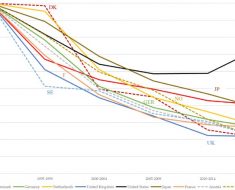
U.S. Customs and Border Protection won’t provide flu vaccines to migrants held at border detention centers, a CBP spokesperson confirmed to PEOPLE.
“In general, due to the short term nature of CBP holding and the complexities of operating vaccination programs, neither CBP nor its medical contractors administer vaccinations to those in our custody,” a CBP spokesperson said in a statement.
However, the Trump administration announced a regulation on Wednesday that would allow the U.S. to hold migrant families indefinitely.
“Persons in our custody who require vaccination are referred to the local health system and may receive vaccinations by medical personnel at a local medical facility, if determined necessary by the medical professional during their assessment,” the spokesperson said. “In circumstances with public health considerations regarding vaccination, CBP coordinates with local health authorities and CDC for support as appropriate.”
According to CNBC, the decision comes after at least three children held in detention centers died in recent months, in part from the flu. The outlet also reported that the centers are dangerously overcrowded.
In a letter to members of Congress sent earlier this month, doctors associated with Harvard and Johns Hopkins universities cited the deaths of the three children and called for an investigation into health care at the centers. According to CBS News, they stated that flu deaths “are fairly rare events for children living in the United States.”
“We suspect that the Department of Homeland Security (DHS) and Department of Health and Human Services (HHS) may not be following best practices with respect to screening, treatment, isolation and prevention of influenza,” the doctors wrote, according to CBS.
The CBP’s decision also comes just weeks before flu season typically ramps up. According to the Centers for Disease Control and Prevention, flu viruses usually begin to increase in October and the flu season peaks between December and February. The CDC also recommends that everyone six months and older get a yearly flu vaccine.
In their statement, the CBP said they currently have about 200 medical personnel along the southern border, an increase from about 20 last year. They also said that medical support is available 24/7 to people in the centers.
“Individuals with flu are handled as appropriate depending on the specific circumstances,” the statement read. “Those migrants with the flu may be diagnosed and treated on site by CBP medical personnel, or may be referred as appropriate to the local health system for diagnosis and treatment.”
Source: Read Full Article





